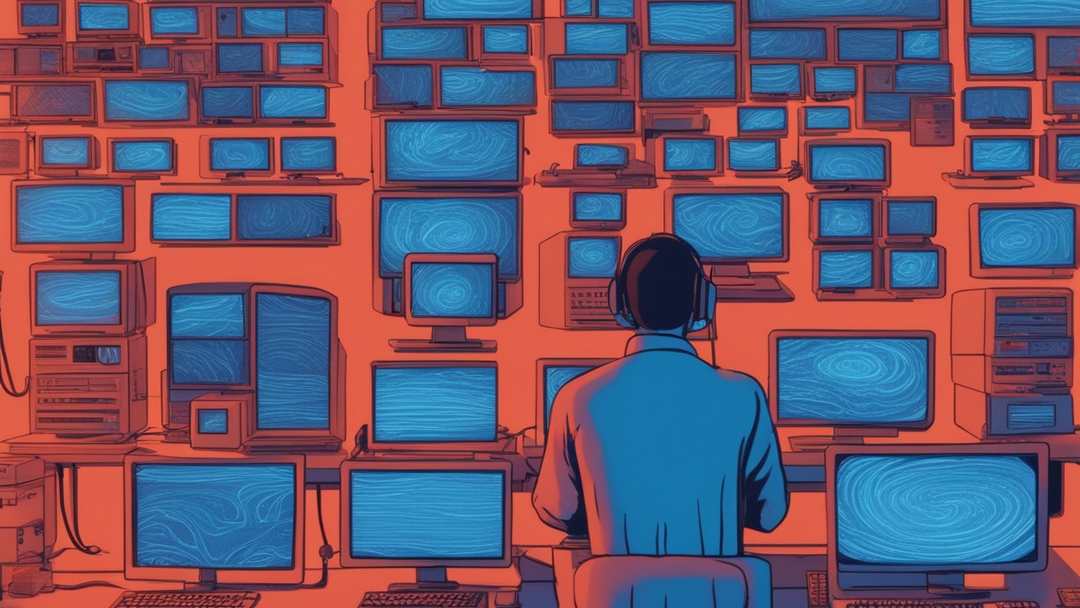The Use of Electronic Devices to Commit Crimes in Michigan
Yes that means your cellphone…
Computer” means any connected, directly interoperable or interactive device, equipment, or facility that uses a computer program or other instructions to perform specific operations including logical, arithmetic, or memory functions with or on computer data or a computer program and that can store, retrieve, alter, or communicate the results of the operations to a person, computer program, computer, computer system, or computer network. Computer includes a computer game device or a cellular telephone, personal digital assistant (PDA), or other handheld device.
Michigan Laws on Electronic Crimes
Michigan has enacted various laws that address offenses involving the use of electronic devices.
For instance, Michigan Compiled Laws (MCL) 750.145d covers crimes involving the use of a computer to commit certain illegal activities.
According to this law, a person who uses a computer, smartphone, or any electronic device to commit or attempt to commit a crime can face serious consequences.
The legal system classifies offenses according to the severity of the crime committed using electronic devices with potential charges varying from misdemeanors to felonies based on the specific circumstances of the offense and the extent of harm inflicted on the victim.
Charges and Penalties
The severity of the charges and penalties for using electronic devices to commit crimes in Michigan depends on the underlying crime being committed.
If the crime is minor, like harassment, the person could face a misdemeanor charge.
However, if the offense involves serious crimes, like identity theft, fraud, or exploitation, it can result in felony charges.
Here are some possible penalties under Michigan law:
- Misdemeanor: A person convicted of a misdemeanor for using an electronic device to commit a crime could face up to 1 year in jail, fines, and potentially probation.
- Felony: If the crime is a felony, the penalties are much more severe. A felony conviction can result in imprisonment for up to 20 years and significant fines.
For more information on the specific laws and penalties regarding cybercrimes in Michigan, you can visit the Michigan Legislature’s website and review MCL 750.145d
Use You Right To Remain Silent
If you have been accused or charged with a crime.
Say nothing to anyone. Talk to us first.
Our firm is experienced in both State and Federal courts defending clients.
CALL NOW
Defenses
When someone is charged with using an electronic device to commit a crime in Michigan, there are several possible defenses they can raise. These defenses can help prove innocence or reduce the severity of the charges. Below are some common defenses that may be used in cases involving electronic or cybercrimes:
Lack of Intent
One of the strongest defenses in electronic crime cases is arguing that there was no criminal intent.
Many cybercrimes, like fraud or hacking, require proof that the defendant intended to commit the crime. If it can be shown that the person did not mean to break the law or was unaware of their actions, they may avoid conviction.
For example, someone may accidentally access someone else’s computer or data without realizing it’s a crime. In such cases, the lack of intent can be a strong defense.
Mistaken Identity
In some cases, a person may be wrongfully accused of committing a cybercrime simply because their electronic device or account was involved.
Cybercrime investigations can be complex, and sometimes, hackers or other criminals use fake identities or stolen devices to hide their true identity.
A person could be wrongly accused if their IP address or device was hijacked by someone else.
Proving that someone else had access to the device or network can help establish a mistaken identity defense.
Insufficient Evidence
For a conviction, the prosecution must provide solid evidence linking the defendant to the crime.
In electronic crimes, there is often a need for technical evidence, such as computer logs, internet activity, or digital communications.
If the evidence is weak, incomplete, or improperly gathered (for example, without a valid warrant), the defense can argue that there isn’t enough proof to convict the accused.
Challenging the quality of evidence or the methods used to gather it is another common defense.
Consent
In some situations, the alleged victim may have given consent to the defendant’s actions. For example, if someone is accused of accessing private data, but the owner of the data had authorized it, this could be a valid defense. If the person being accused had permission to use the computer, access files, or make certain transactions, this can be presented in court as a defense.
Entrapment
Entrapment occurs when law enforcement officers or government agents induce a person to commit a crime they wouldn’t have otherwise committed.
If the defense can prove that the police pressured the accused into carrying out an illegal act using an electronic device, entrapment can be a defense. However, this defense only works if the defendant can prove they would not have committed the crime without the influence of law enforcement.
Duress or Coercion
A person might commit a crime because they were forced or threatened to do so by someone else.
If the defendant can show that they were acting under duress—for example, being blackmailed or physically threatened to carry out a cybercrime—they might be able to avoid punishment or receive a lesser sentence.
Age or Mental Capacity
A defendant may claim that they did not have the mental capacity to understand the consequences of their actions due to their age, mental illness, or a cognitive disorder.
This defense can be used if the accused is a minor or suffers from a condition that affects their ability to form intent or comprehend the seriousness of their actions.
But in the End
Your phone is your phone and you probably called your Mom with it. Your computer is your computer and you have probably sent emails and surfed the web with it.
As for the system putting things on your computer as evidence. One can not say that it hasn’t been done before and it’s always possible.
Better call a fighting lawyer and prepare to pay for it. Could be more cost effective for your future and cheaper than sitting in jail. You don’t make money there. They do.
Note: This article provides a general overview and does not substitute for legal advice. Anyone charged with a CSC offense should consult an attorney for specific legal guidance.
Laws
Squatters and the Law in Michigan
Squatters and YouSquatting, in one definition is the act of occupying a property without legal permission, can be a headache for both property owners and squatters themselves. Sorry to cause you a such a headache squatter. Michigan has specific laws addressing...
Adverse Possession in Michigan – Can Someone Claim Your Property?
Understanding Adverse Possession in MichiganMichigan recognizes adverse possession, a legal doctrine allowing someone to acquire ownership of real property they've occupied for a specific period, even without a formal title.The Statute: MCL 600.5801 The relevant...
Red Flag Rules for Extreme Risk Protection Orders-Firearms Act
Michigan Supreme Court - These changes follow the creation of the Extreme Risk Protection Order Act and amendments to the Firearms Act. Red Flag Laws.Effective February 13, 2024On February 6, 2024, the Michigan Supreme Court issued ADM File No. 2023-24, which adopts...
Synthetic Marijuana (Synthetic Cannabinoid Homologues)
Spice/ K2, Synthetic MarijuanaWhat is Spice/ K2, Synthetic Marijuana? K2 and Spice are just two of the various trade names or brands for synthetic designer drugs that aim to replicate THC, the primary psychoactive component of marijuana. These designer synthetic drugs...
Michigan Court Rules
MICHIGAN COURT RULES OF 1985Updated February 13, 2024 The Michigan Court Rules The Michigan Rules of Court are the rules adopted by the Michigan Supreme Court to govern Michigan’s legal system and the judges, lawyers, and other professionals who are charged with...
Understanding Michigan’s Cyberbullying Law (MCL 750.411x)
Understanding Michigan's Cyberbullying Law With the ever-expanding digital landscape, cyberbullying has become a harsh reality for many. Michigan, recognizing its seriousness, has established specific laws to address this issue. Here's some things you need to knowWhat...
Involuntary Manslaughter Charges and Penalties in Michigan
Involuntary Manslaughter Charges and Penalties in MichiganHere's things you should to knowWhat is Involuntary Manslaughter in Michigan? Involuntary manslaughter differs from murder in that it lacks intent to kill. In Michigan, it is somewhat defined as the killing of...
The Expanding List of Crimes that Restrict Gun Ownership
The Expanding List of Crimes that Restrict Gun Ownership in MichiganHere are the LawsDomestic Violence The legislature passed a package of bills that add subsets to certain misdemeanor offenses (identified below) for offenses involving domestic relationships. See 2023...
Forensic Science Division – DNA Profiling System
The Michigan State Police Forensic Science Division (FSD) DNA Profiling System is a comprehensive program that uses DNA analysis to support criminal investigations throughout the state. The system is housed within the Biometrics and Identification Division (BID),...
Examining Michigan’s Act 247 and the Publication of Notices
Are Newspapers Still the Town Crier in a Digital Age? Examining Michigan's Act 247 and the Publication of Notices In today's rapidly evolving digital landscape, the role of traditional media like newspapers is constantly under scrutiny. Yet, in Michigan, a 1963 law,...






















